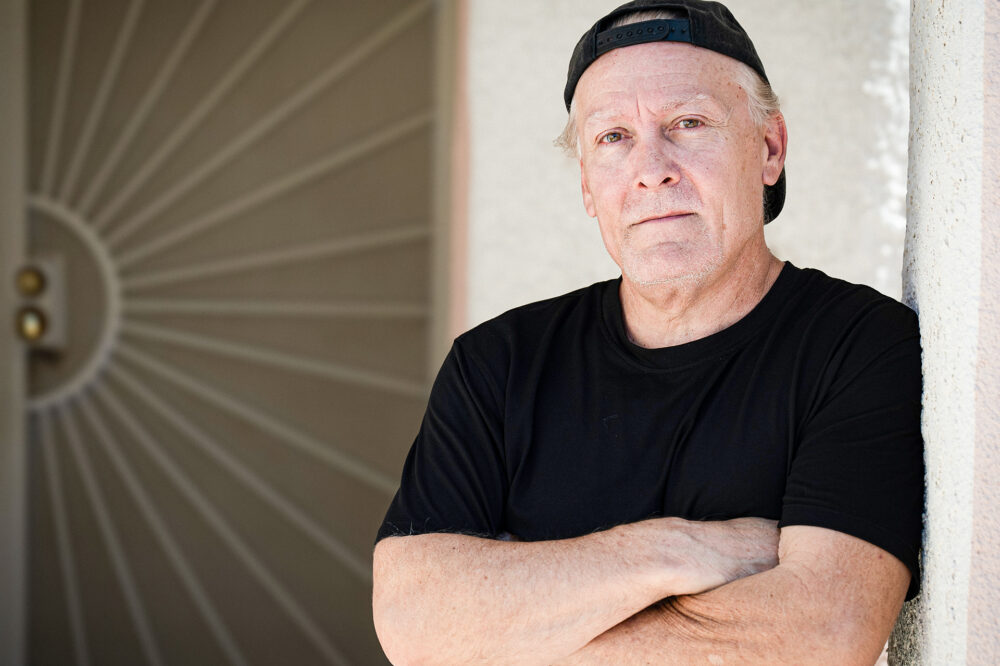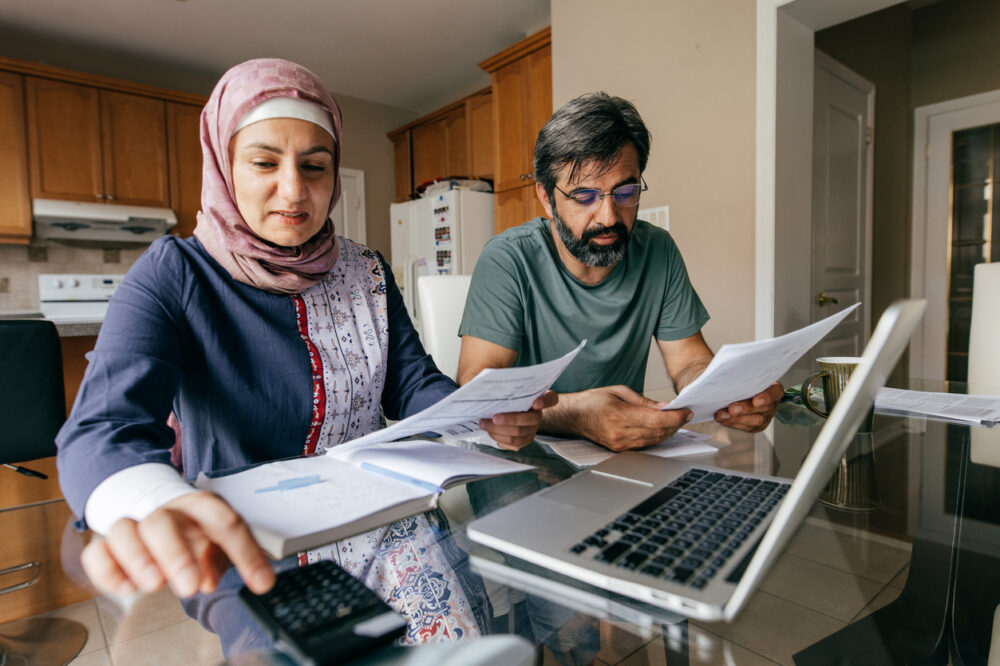Still Striving for Financial Independence: Becky’s Story
Entering adulthood has come with ‘curveballs’ that her parents never faced, and an increasingly uneven playing field to catch up.
By Financial Health Network
-
Category:
-
Tags:
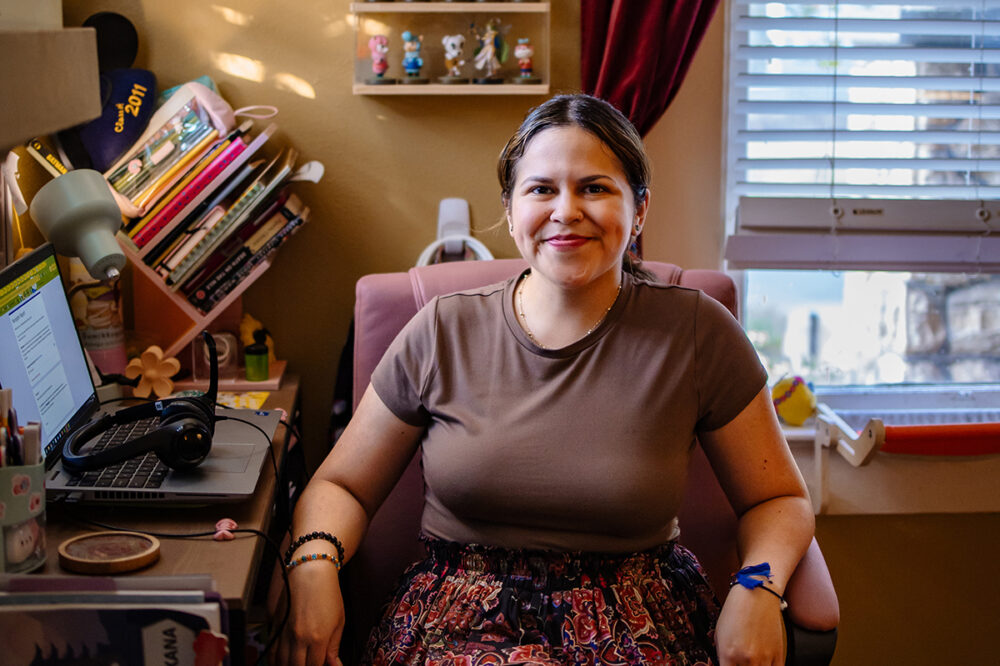
As a newlywed, Becky Contreras has plenty to be thankful for: a new rental home, a husband who still has a job, and a support network of family and friends in her hometown of San Antonio, Texas.
Still, the path to financial independence has been anything but smooth. Now well into adulthood, Becky has dealt with roadblocks she never imagined, from an unstable job market to the costs of extreme weather.
-
Before she could move into her San Antonio home, Becky had to get a second job to meet landlords’ income requirements.
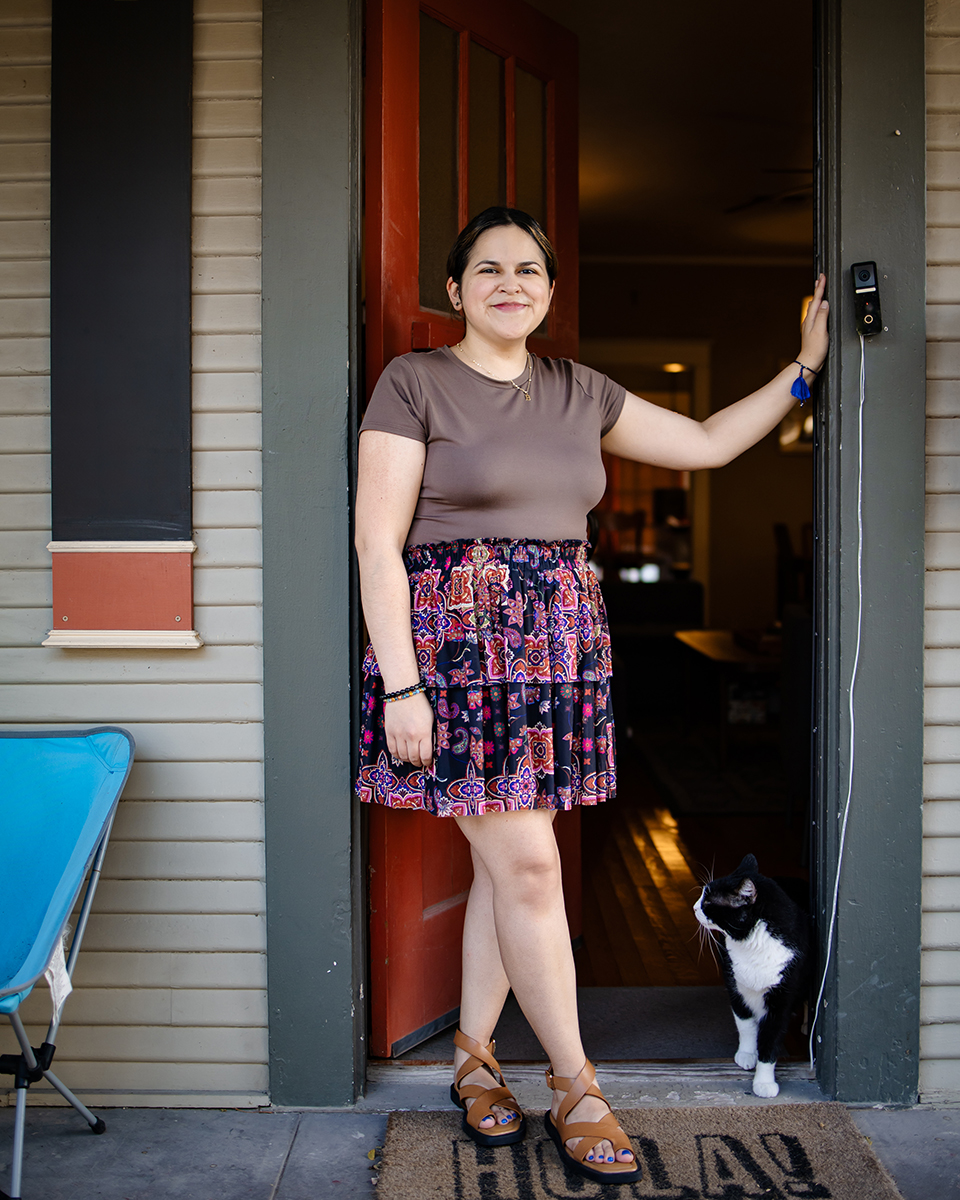
-
Becky and Joseph Contreras stick to their monthly budget by cooking and entertaining at home.
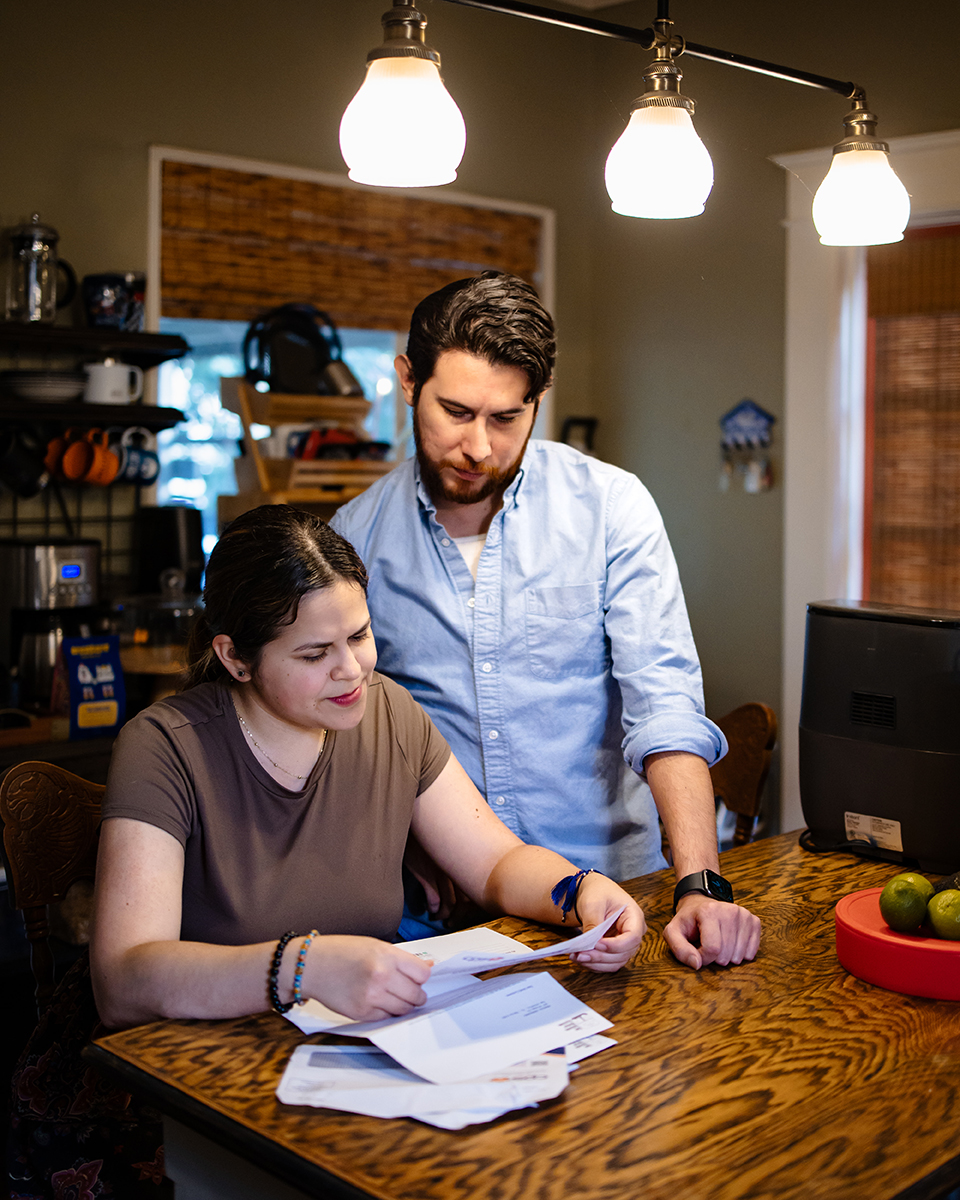
When she and her-now husband applied for rental housing, they both had to meet income eligibility requirements since they weren’t yet married. As a result, it took months to be approved for a unit. To make up the shortfall in her income on the application, Becky had to find a second part-time job. And even after landing the rental, she had to take on debt to cover utilities due to weeks of 100-degree days.
As a worker for a government-funded nonprofit, the 31-year-old also recently learned she will lose her job in a few months due to federal funding rollbacks.
“My long-term goals feel a little delayed. At my age, my parents’ generation already had a home and financial security with their jobs and being able to afford things…”
Becky is one of millions of young Millennials who are reaching adulthood without the financial security of prior generations. Depending on older family members is critical to cover day-to-day needs. Even after graduating college, she lived with her in-laws in a multi-generational household for six years before moving out. And after a recent accident totaled her vehicle, her in-laws again stepped up to give her a car.
As a third-generation Mexican American, Becky worries that she won’t be able to live up to her family’s vision of the American Dream. The milestones that once seemed synonymous with adulthood – having children, owning a home, and using her college degree to build a stable career – increasingly feel out of reach.
Here’s her story.
I am currently a federal navigator with a coalition in San Antonio, but I’m actually going to lose that job soon. My organization helps people sign up for medical insurance and has gone through a lot of budget cuts, so that’s been a strain. Last year, they also had run out of some funding, and I was furloughed for six months. We’ve been getting less people coming into the clinic just because of fear of giving out too much information in case they get deported. It impacts not just all of us in our jobs, but the community too, because they can’t get the health insurance access they need. It feels like we’re going backwards. Within the Hispanic culture, we’ve always seen health insurance as something we’ve never had access to or there were barriers.
-
Surging utility costs during a Texas heat wave forced Becky to take on debt to cover her monthly bills.
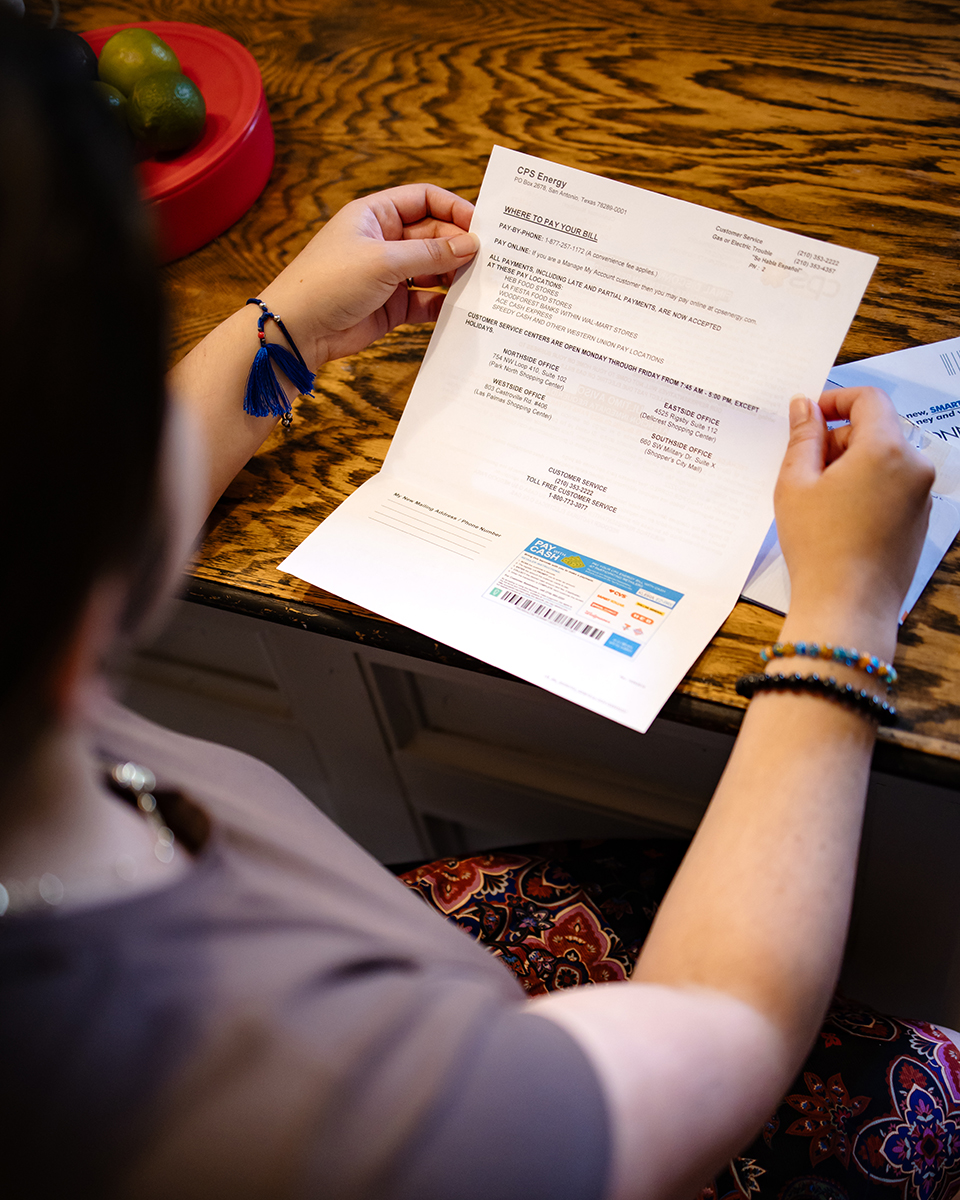
-
While proud of her accomplishments, Becky also feels 'delayed' in meeting her financial milestones compared to her parents' generation.
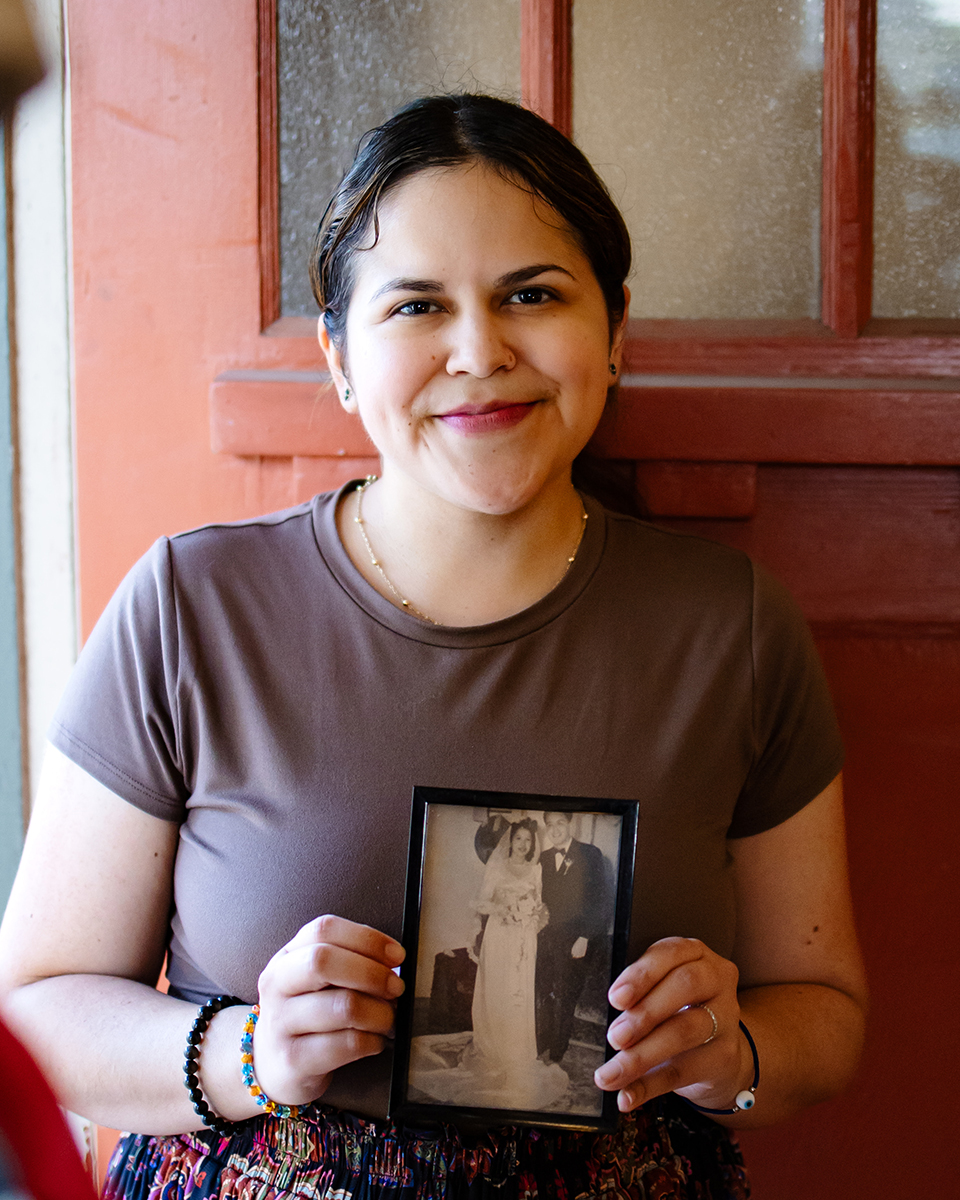
-
As newlyweds, Becky and Joseph are holding off from having children until both feel more financially stable.
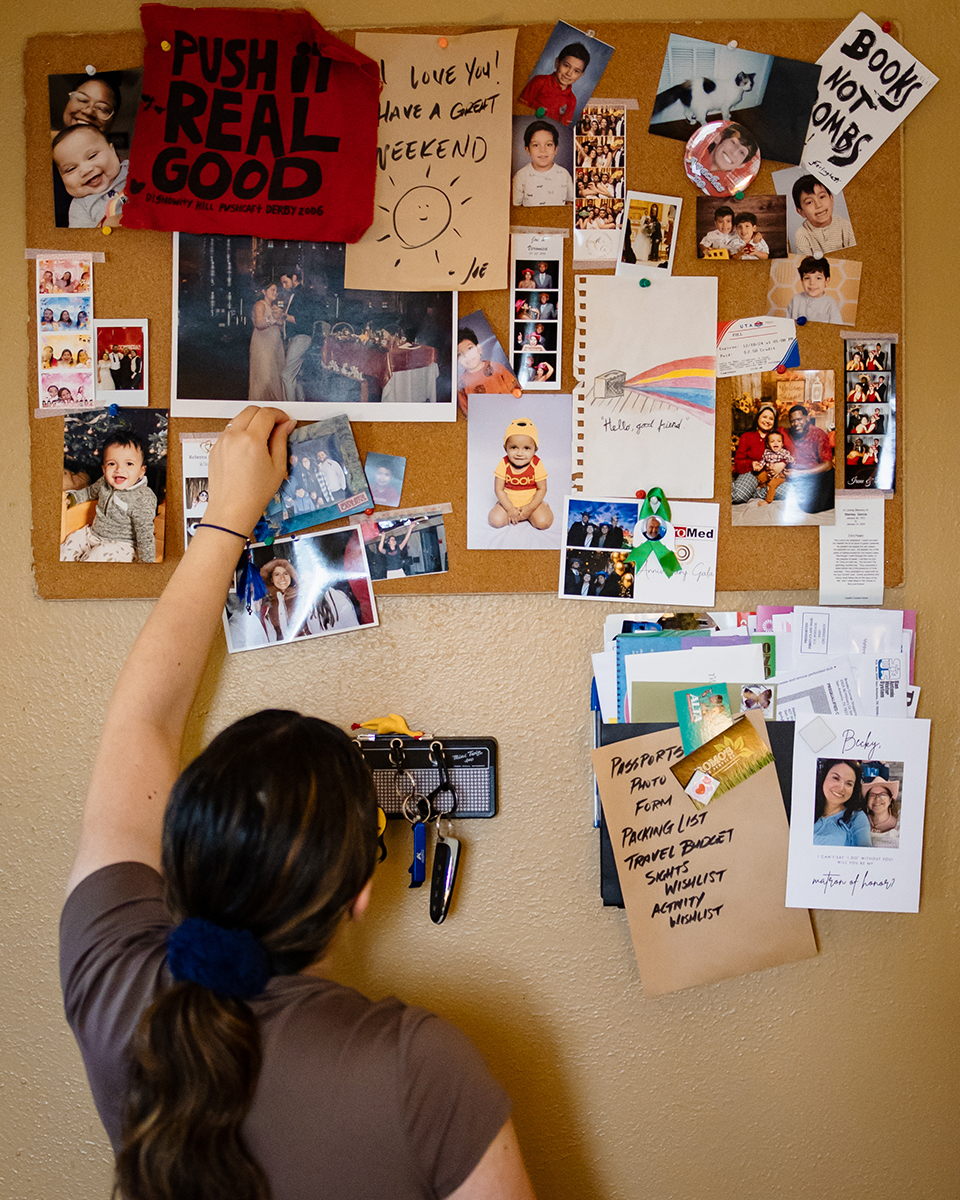
46% of Latinx households reported feeling confident that their insurance would cover them in an emergency in 2024, a decline of 7 percentage points from the previous year.
Source: Financial Health Pulse® 2024 U.S. Trends Report
Previously, my husband and I were both living with a roommate for about two and a half years. Before that, we were living with his parents, my in-laws, for six years. I never meant to stay that long. We didn’t pay rent, but contributed in other ways. We’ve been together for 10 years. I graduated college and got a full-time job and was able to save up more than $5,000 before we finally moved out.
I had to get a second job just so I could afford the house we currently rent. When we started looking, I learned that the landlords here only use one income since we weren’t married. We got rejected from other rentals, because we didn’t meet the income requirements. I found a part-time contract job that was able to give me an additional $1,200 a month, and eventually I was able to qualify to pay rent on my own. We were even willing to pay a little more, especially after getting rejected so many times.
Right after we got married, it felt that we were hitting a lot of financial curveballs. For one, I started putting the energy bill and the water bill under my name, and I wasn’t expecting the additional cost with some of the higher temperatures that we’ve had. Last year, we had more than 20 days of consecutive weather over 100 degrees. We split the rent and it’s around $1,100 for us to pay each, but the energy bills were going up to $500 or $600 a month. About 40% of our income goes toward housing, especially with utilities.
When I got furloughed previously from my job, it was burdensome to pay the utilities, and I had to get on a payment plan. It caused me a lot of grief, and there wasn’t any forgiveness or aid. I had lost my income, and there was just no way I could pay that amount of additional money per month. I was lucky that my husband had a stable income, but there were a lot of other people at risk for having their power cut off and who hadn’t caught up from two hot summers and didn’t have anything to fall back on. During the hotter months, I did everything I could to conserve energy and kept it at 80 degrees, but I work from home, and it wasn’t enough.
“We’re not eating super extravagant meals, but it’s still very expensive just to have sandwiches and spaghetti.”
I don’t have as much left from my one paycheck to the next, but my husband’s new job came with a pay increase. Still, we cook more meals at home, because we are just trying to save. We do a lot of spaghetti and meatballs, chalupas, and frozen chicken breast. We’re not eating super extravagant meals, but it’s still very expensive just to have sandwiches and spaghetti. Wages are low. A lot of people in San Antonio live on $30,000 or $40,000, but prices are getting more expensive.
We have cut down on all the non-essentials, like entertainment. Taking away Netflix and other streaming services, and things that we don’t need. We do spend more time at home, and we’ll invite company over.
-
Becky and Joseph lived with his parents for six years before having enough savings to move out.
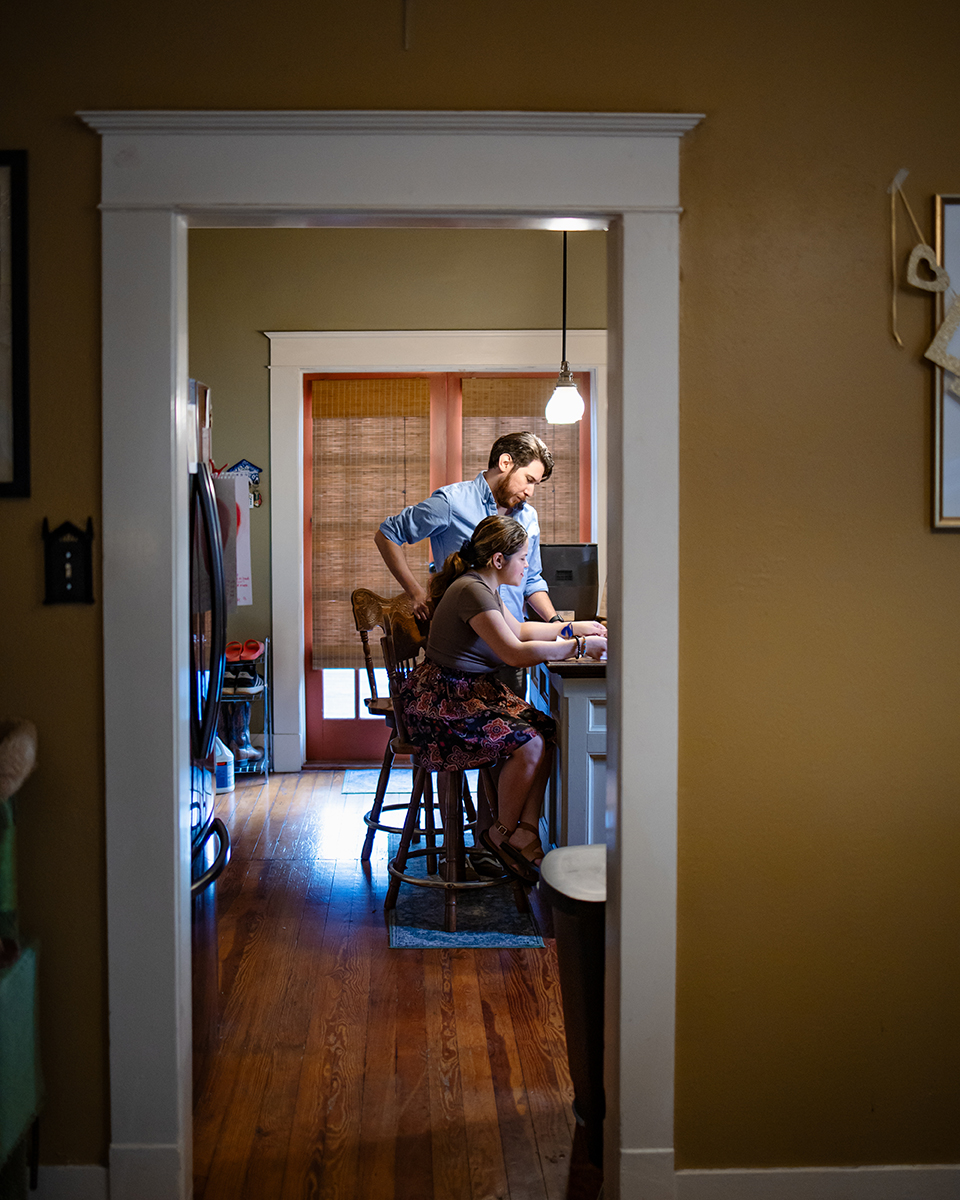
-
After a furlough last year, Becky is bracing for another setback: permanent job loss.
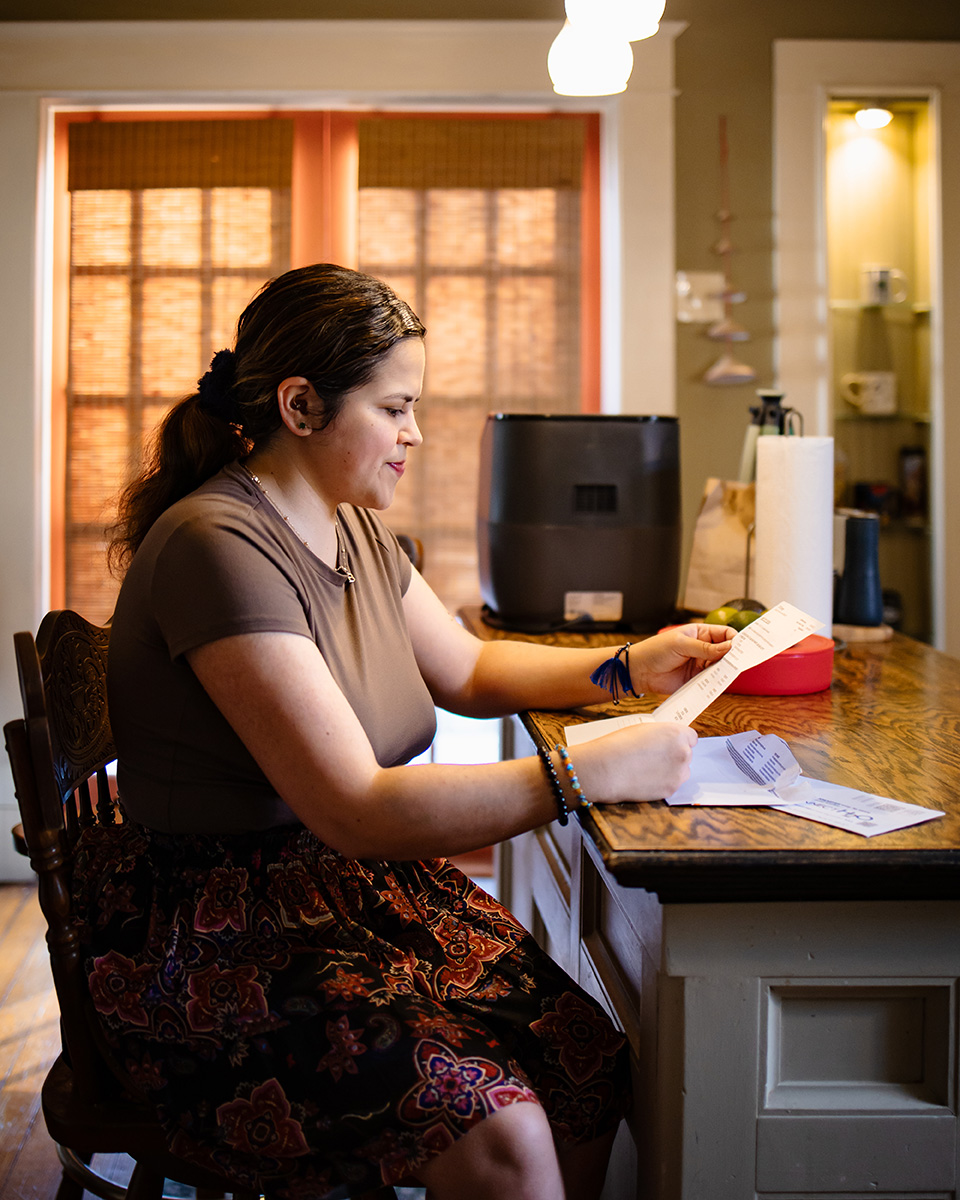
It’s tough to kind of plan and save, because life happens. A few months back, we got into a car accident. Our car was paid off and we couldn’t afford to purchase another one. We’ve had to borrow my in-laws’ car, which they’ve been gracious enough to lend to us for the time being. We’re fortunate to have those safety nets and family unity, but it does seem that there are always financial hurdles, and it’s been tough to replenish our savings.
My long-term goals feel a little delayed. At my age, my parents’ generation already had a home and financial security with their jobs and being able to afford things – I had to kind of delay those. I believe it’s gotten more difficult financially to save up for cars, houses, and big purchases. I ultimately want to try to fight for my financial stability and secure a good job and benefits. And as much as we would like to have children, we want to be financially stable first before we make that decision. I’m still trying to remain optimistic.
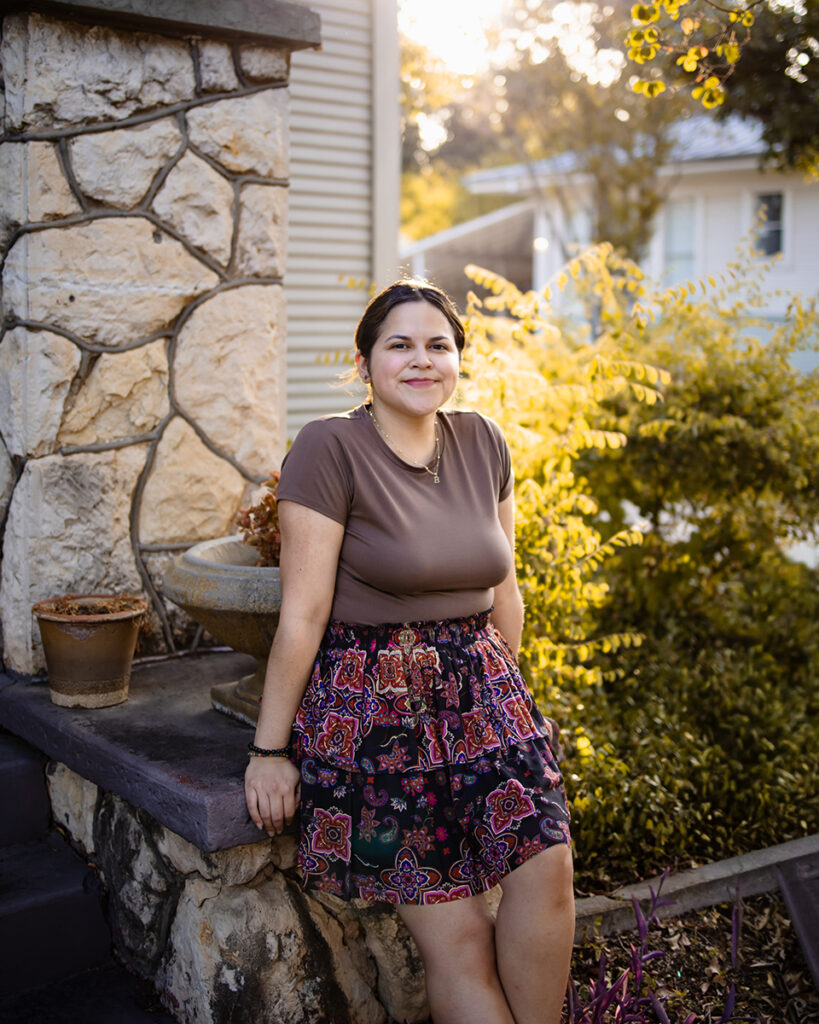
Becky aspires to achieve financial stability despite the economic hurdles that have delayed these traditional life milestones.
Becky is one of many younger people in the U.S. experiencing financial shortfalls during a time of employment instability, rising education costs, and a competitive housing market. Research shows that young Millennials like Becky have to plan for a vastly different financial world than their parents or grandparents. Since 1990, college costs have risen by 400% and homeownership costs have risen about 240%, making debt financing the only way to reach some milestones. In addition, roughly 50% of renters in the U.S. are “cost burdened” because of a lack of affordable housing, including a disproportionate amount of Black and Latinx renters.
Increasingly, young adults like Becky are questioning a core tenet of the American Dream: that each generation will be financially better off than the last. Today, 80% of people in the U.S. think the American Dream is tougher to attain than in the past, according to 2025 IPSOS data.
But there’s a bright side: younger generations, thanks in part to social media, are showing less stigma in speaking up about their financial challenges and are ready for new solutions. Whether it’s making rental income check requirements more accessible or easing the burden of surging utility costs during heat waves, consumer-centered reforms would offer real relief to Becky and her husband. Becky’s experiences highlight the pressing need to rethink financial health across generations.
Share Your Story With Us
Our Human Stories spotlight the real-life experiences of people navigating disaster recovery, disability, career transitions, multigenerational living, and more – bringing fresh urgency to the financial challenges facing Americans today. Have a story to share? We’d love to hear from you.
Read More Human Stories
From Poverty to a College Degree: Angel’s Story
Without a financial safety net, one college graduate’s journey to a diploma was paved with setbacks and plenty of resolve.
600 Job Applications, No Offers: Zerui’s Story
After earning his master’s with honors last year, Zerui is getting by on low-wage work while he continues to apply for jobs. Still, he remains hopeful.
Rebuilding Without Renters Insurance: Rob’s Story
After a movie-like getaway, Rob lost his car, home, and work equipment to the LA wildfires. Weeks later, another family tragedy hit.
Explore More on Generational Needs
Financial Health Runs in the Family: Intergenerational Trends and Opportunities
Family members don’t live in silos, and financial health solutions can’t, either. How can we take a holistic approach to meet every generation’s needs?
Financial Health Frontiers: Households Under Financial Pressure
The first brief of our Financial Health Frontiers Initiative takes a deeper look at the evolving financial lives of “middle-class” households and why their financial health depends on a holistic approach.
Financial Health Pulse® 2024 U.S. Trends Report
Some households were more acutely affected by the past year’s economic forces than others, depending on their debts and assets held.


